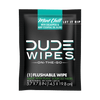How to Fight Colorectal Cancer During National Minority Health Month
Melvin “Mel” Fernandes’ annual brotherly tradition saved his life.
Mel, a healthy 42-year-old, met up with his brother to watch the 2016 Ryder Cup in Minnesota. But something was off. Mel’s brother, a doctor, noticed that Mel had lost weight, but not in a healthy way. He also didn’t have his normal appetite, so his brother suggested he should get a colonoscopy.
Shortly after he got home, Mel had trouble getting his symptoms checked out by a doctor, so he went to Texas where one of his brother’s partners did a colonoscopy. A large tumor was found and within weeks Mel was undergoing radiation. Mel’s battle with rectal cancer, which involved numerous surgeries and chemotherapy, is going on five years.
“It’s been a long journey,” says Mel. “Don’t let fear prevent you from seeking medical advice or getting screened for colorectal cancer. The sooner you face it, the more preventable it is.”
Mel’s story has inspired many dudes who are fighting this preventable disease. And this month, National Minority Health Month, is especially important for that fight.
What is National Minority Health Month?
April is National Minority Health Month—a time to raise awareness and remove obstacles to affordable, quality healthcare among minority populations, including, but not limited to, African Americans, Native Americans, Latinx, Alaskan Natives, and Asian Americans.
Healthcare is a broad topic, which is why we teamed up with our friends at Fight Colorectal Cancer (Fight CRC) to focus on a healthcare issue that tends to impact minority populations harder than others: colorectal cancer.
Coming up, you’ll get insights and advice from survivors and one of the best doctors in the game: Dr. Darrell Gray, the Director of Endoscopy and Gastroenterology services at Ohio State University’s Wexner Medical Center.
What Are the Disparities for CRC and CRC Screening?
Navigating prevention, treatment, and follow-up care for colorectal cancer is challenging for anyone. However, research has demonstrated that minority populations face even bigger barriers.
“African Americans have the highest incidence (number of new cases) and mortality (death) rates from colorectal cancer in the nation and tend to present with colorectal cancer at a younger age,” says Dr. Gray. “Both African Americans and Native Americans tend to have more advanced disease at presentation and poorer cancer-free survival at all stages of disease as compared to other racial and ethnic groups.”
Early detection can be a lifesaver. Your best bet to prevent CRC is to get screened starting at age 45 (or earlier if you are high-risk) and tell your doctor about any symptoms right away. But as Dr. Gray points out, colorectal screening rates among some minority populations are lower due to factors such as lack of insurance, low income, limited education, geographic isolation, or fear.
Every dude deserves equal access to resources to prevent and fight colorectal cancer. That starts with ending the stigma surrounding colorectal health and helping people get access to affordable screening.
How to Help in the Fight for Health Equity
The most important thing you can do to help close the colorectal health disparity gap is getting screened as soon as recommended and encouraging your family and friends to do the same.
In regard to getting screened, “Having discomfort for one day could save you for the rest of your life,” says Mel.
You can also donate to organizations fighting for health equity, advocate for policy changes in your state, or volunteer in your local community to raise awareness of colorectal cancer and reduce barriers to screening.
The team at Fight CRC is leading the charge on the front lines to eliminate health disparities. They are committed to the 80% in every community campaign, with the goal to reach 80% colorectal cancer screening rates nationally. They also advocate in Washington, DC, and state capitols to remove barriers for colorectal cancer screening and work in communities to spread awareness.
While you are checking out these campaigns, head over to Fight CRC’s resource library to learn more about the impact of colorectal cancer and download a variety of free resources to share with your community.
Colorectal Health Equity Resources
For more information, check out the following resources courtesy of Fight CRC:
- Q&A with Dr. Darrell Gray
- Can We Fix Racial Gaps in Colorectal Cancer Death Rates?
- LGBTQ Cancer Resources
And if you’re planning a colonoscopy, check out our colonoscopy prep guide so you know what to expect.
Together, we can help dudes everywhere stay healthy and cancer-free.









